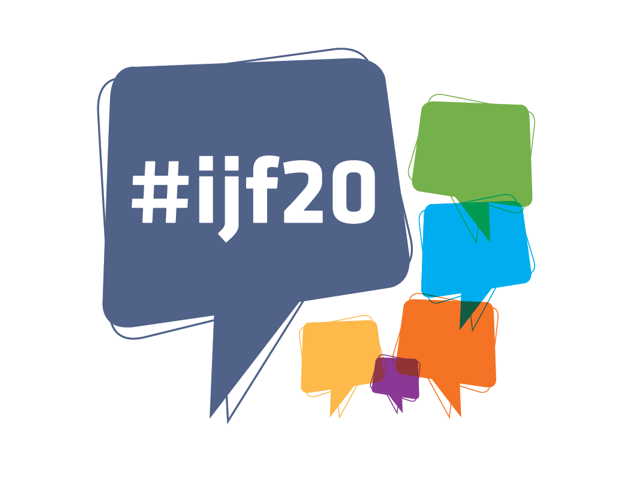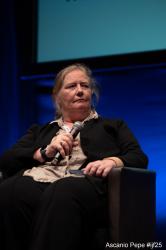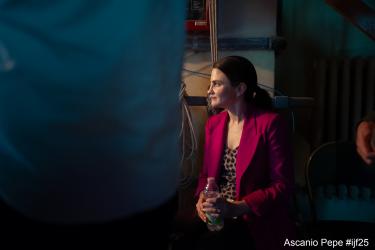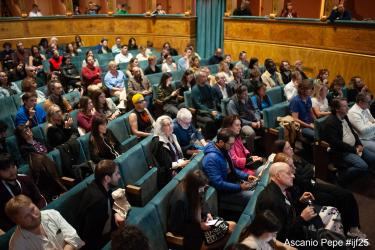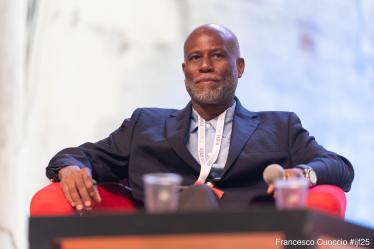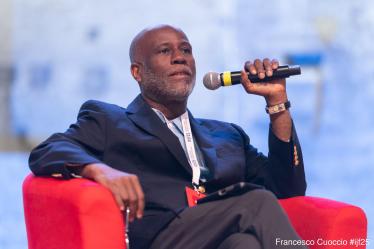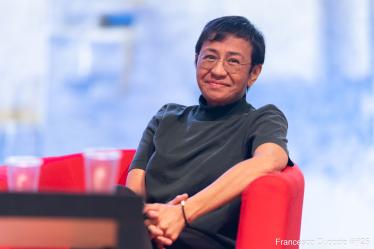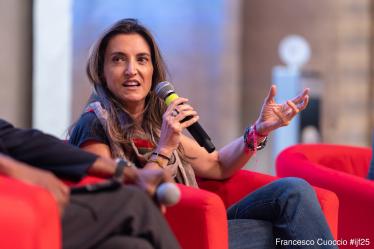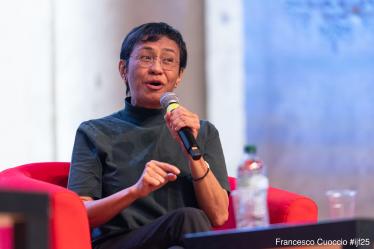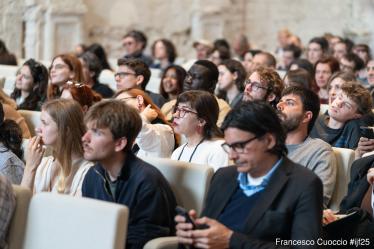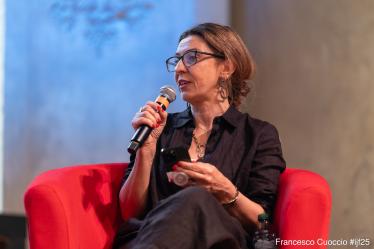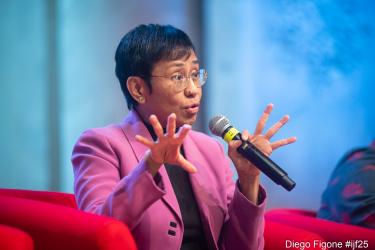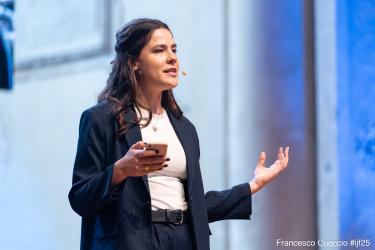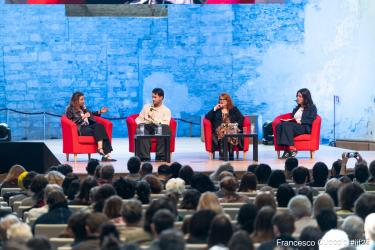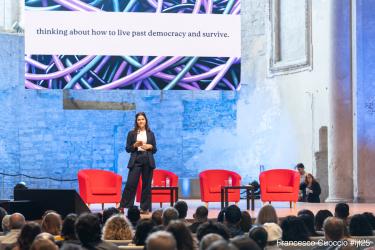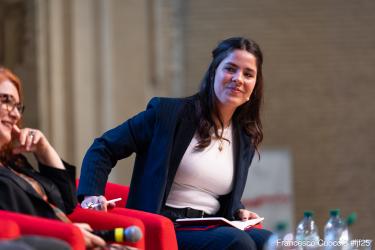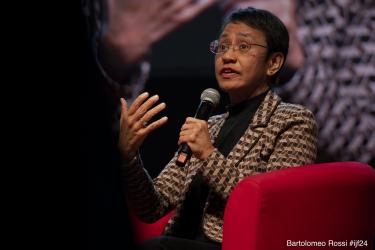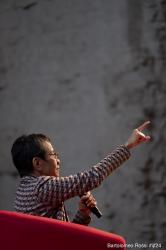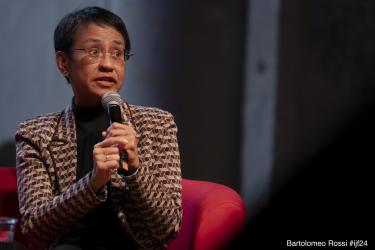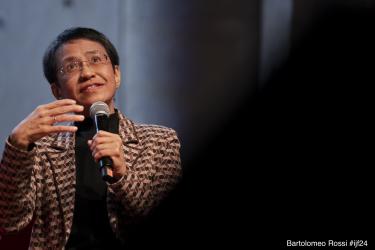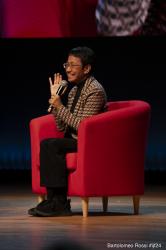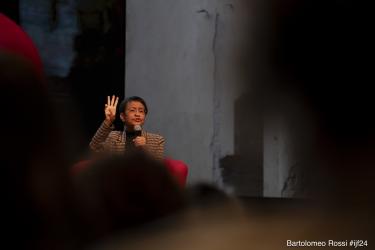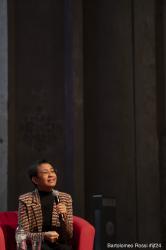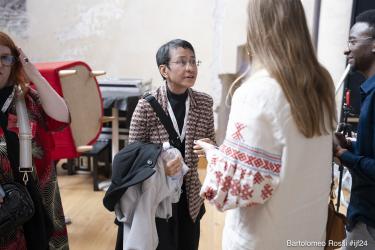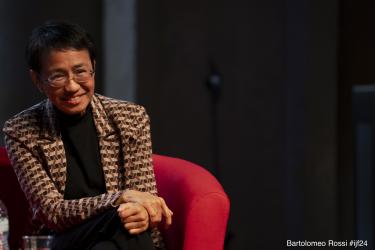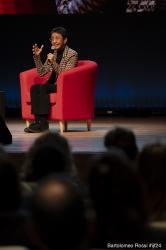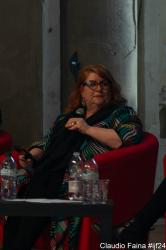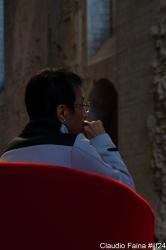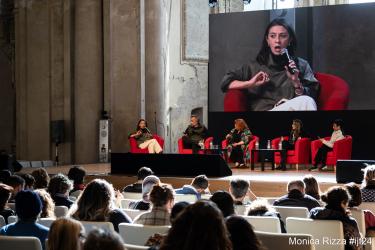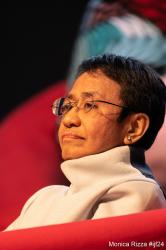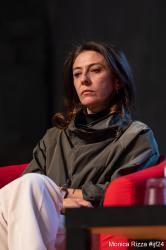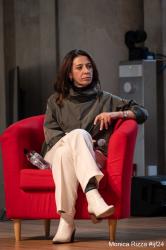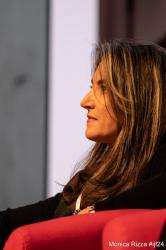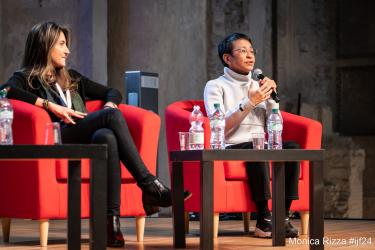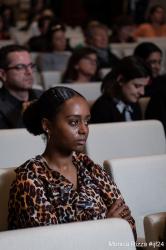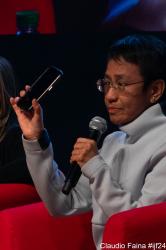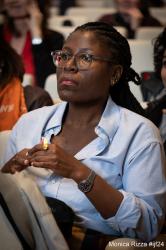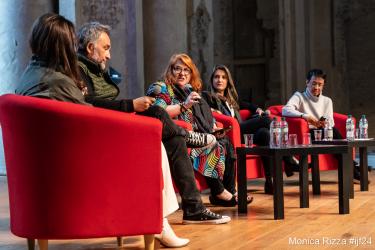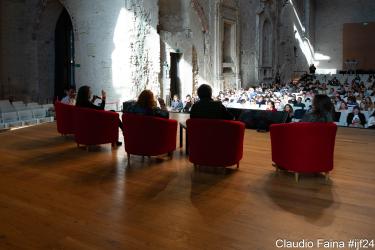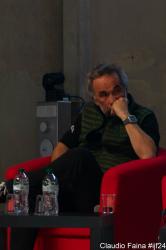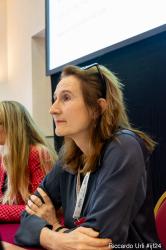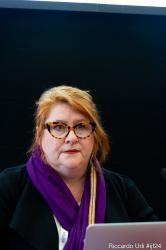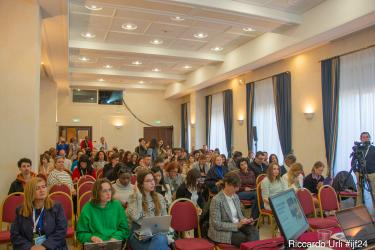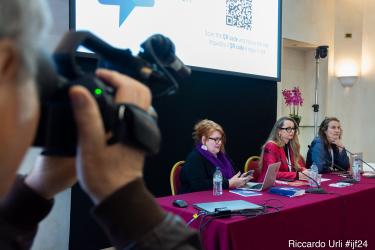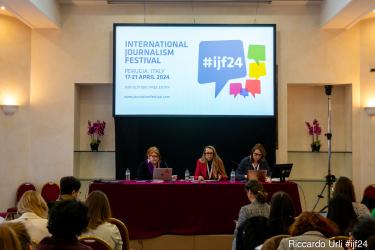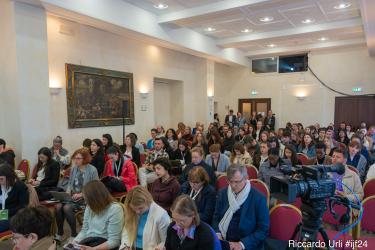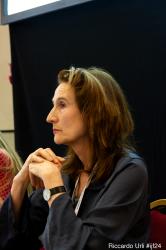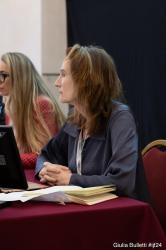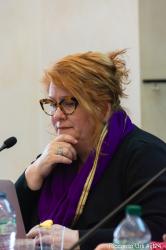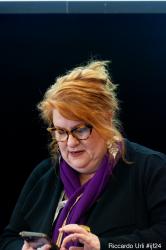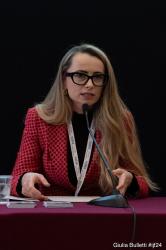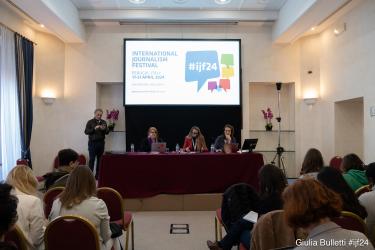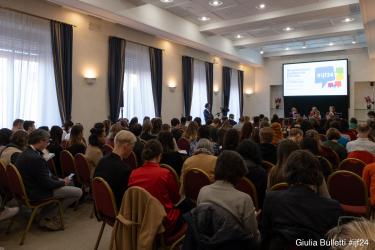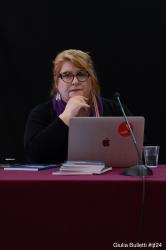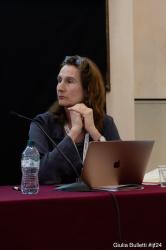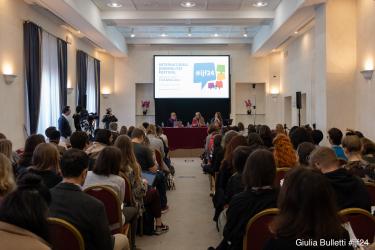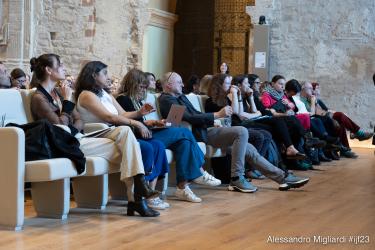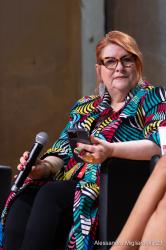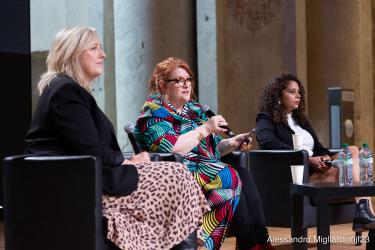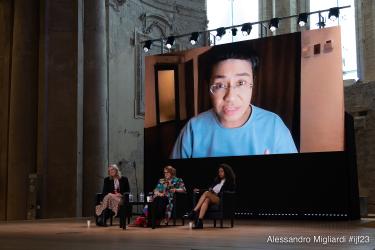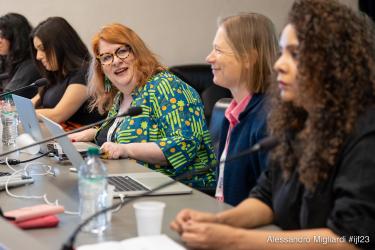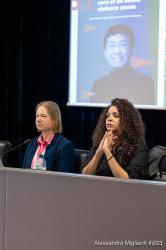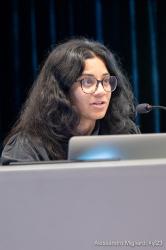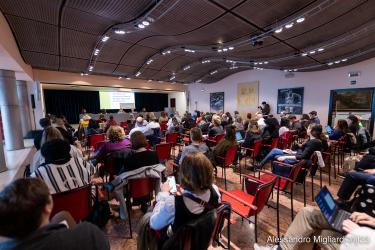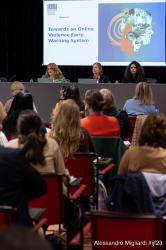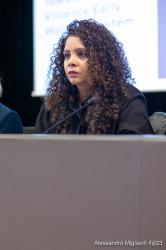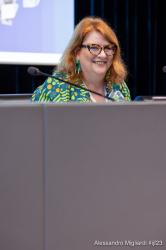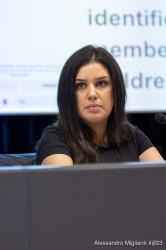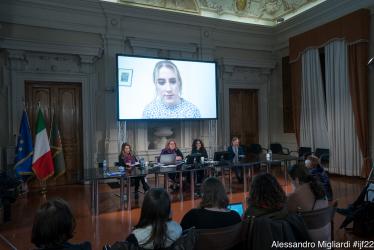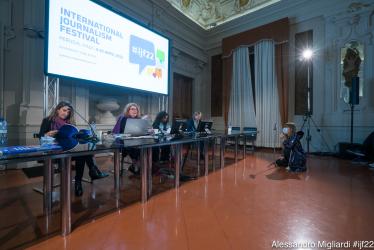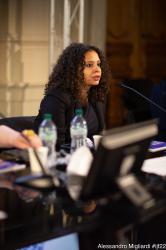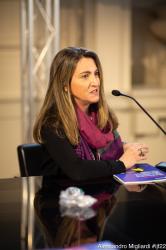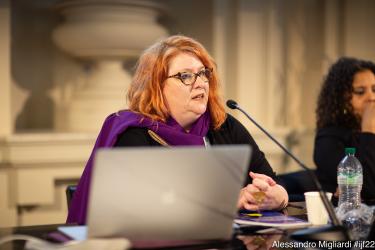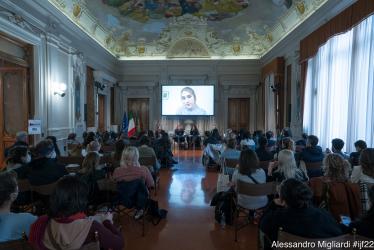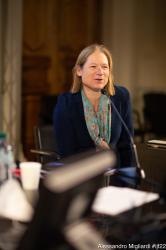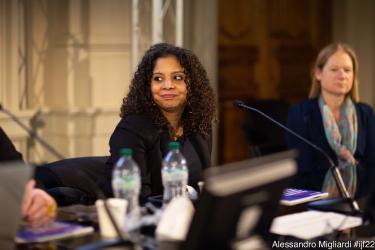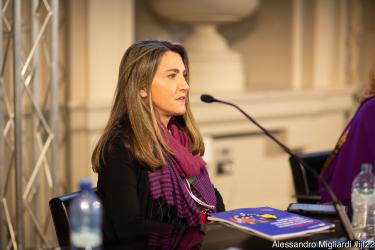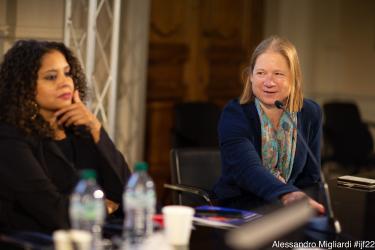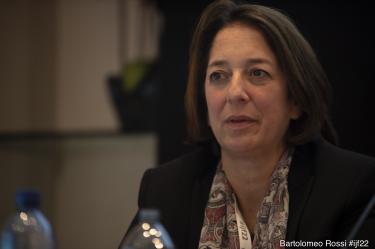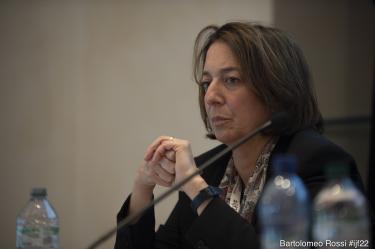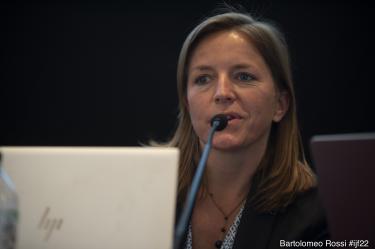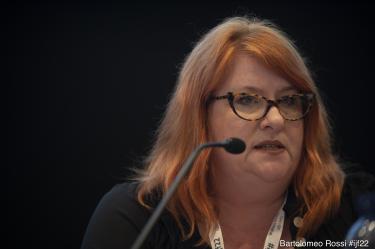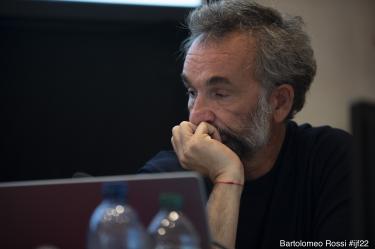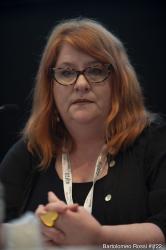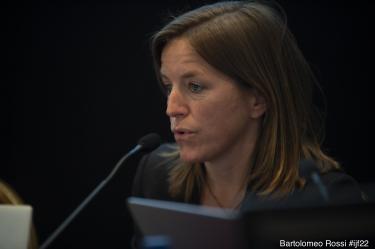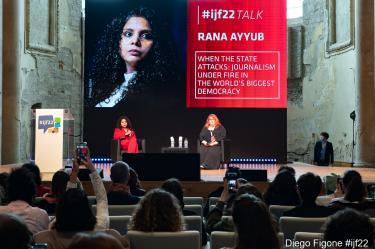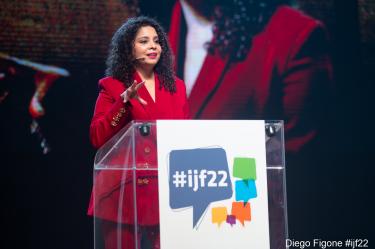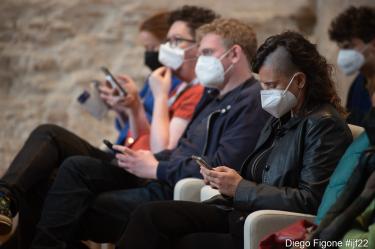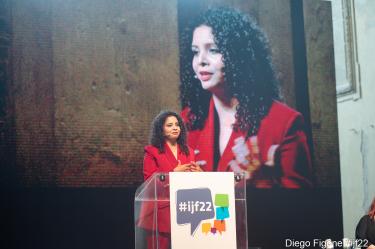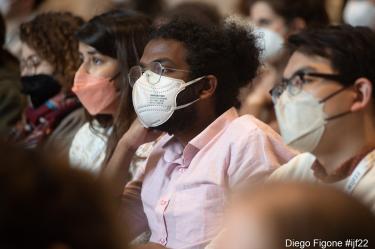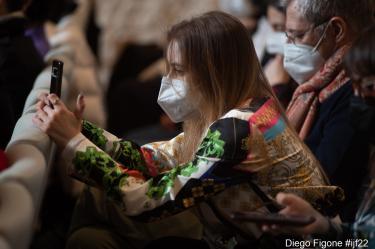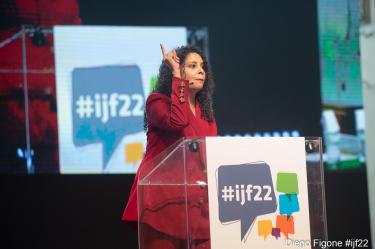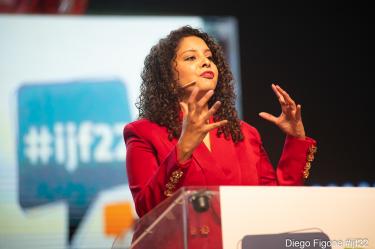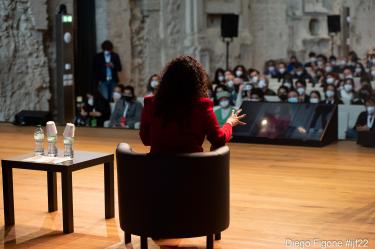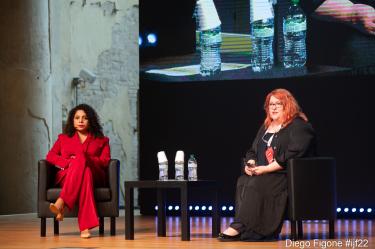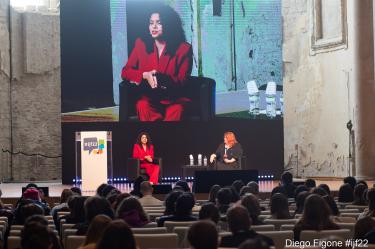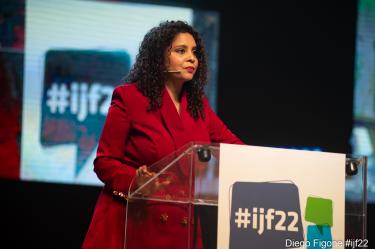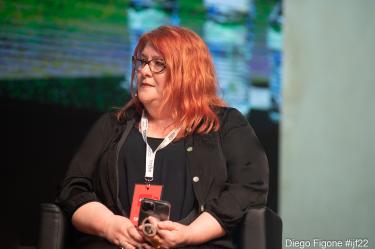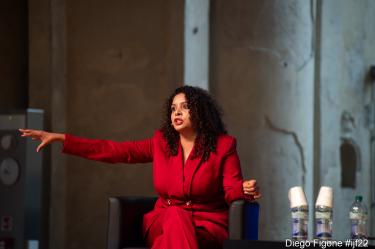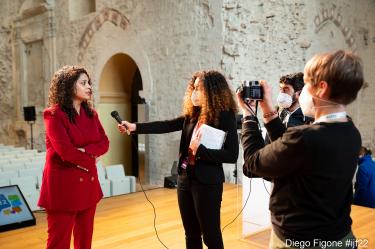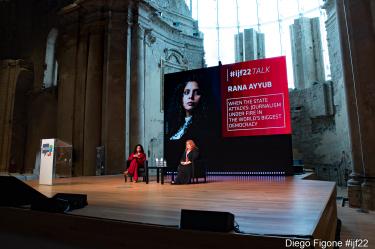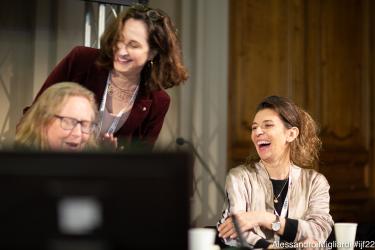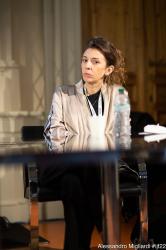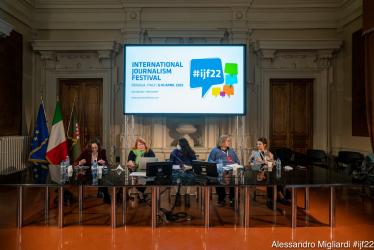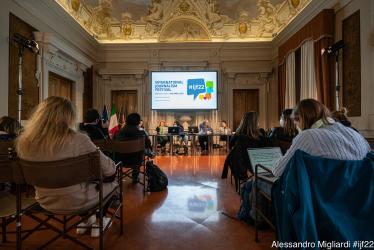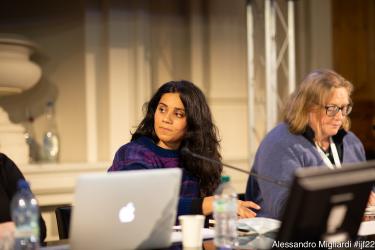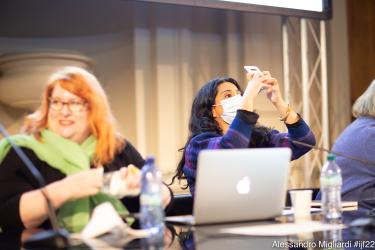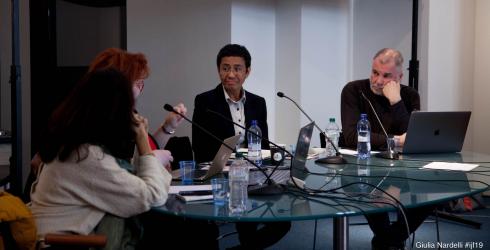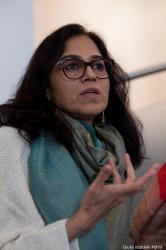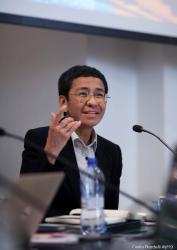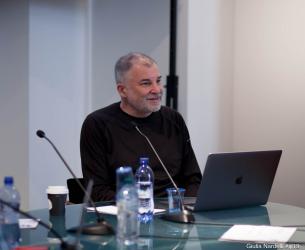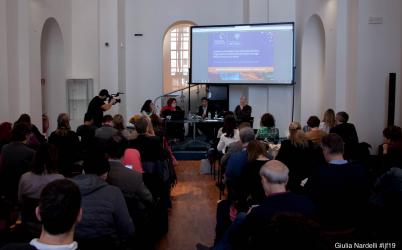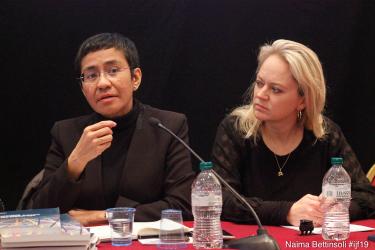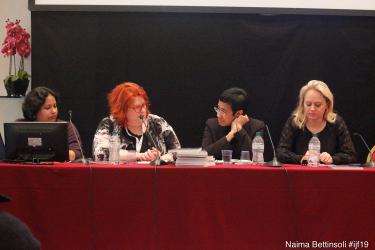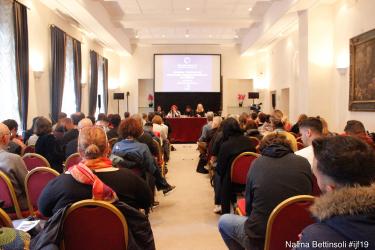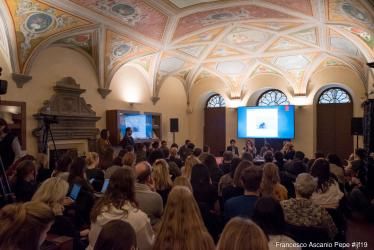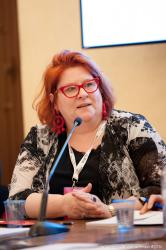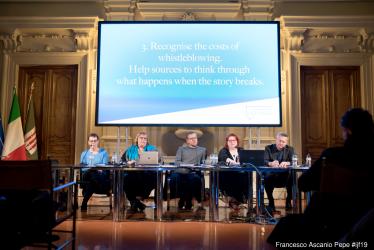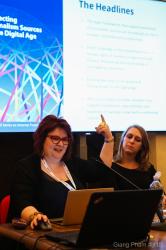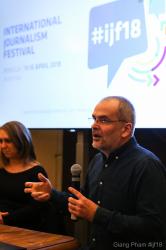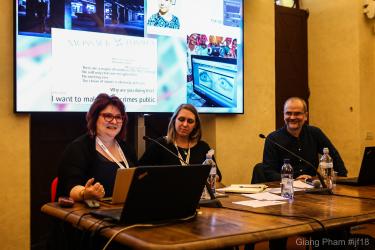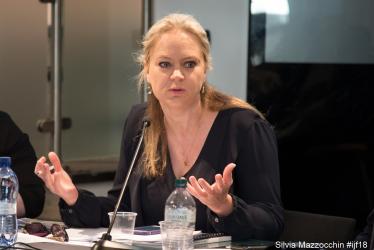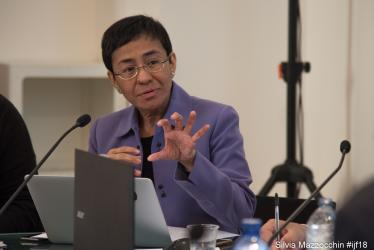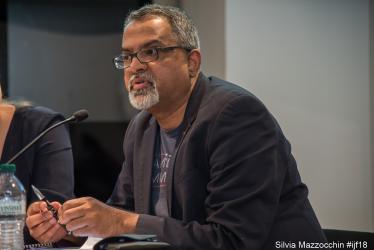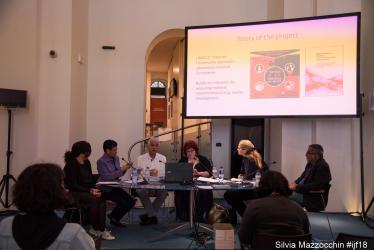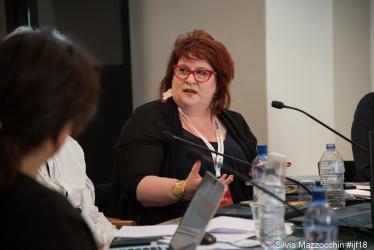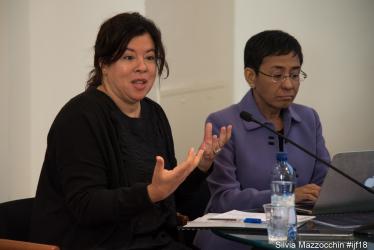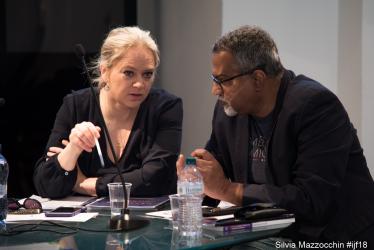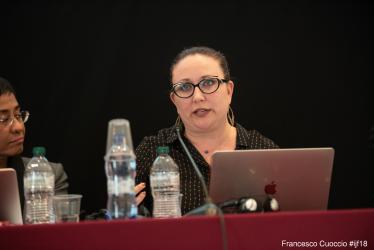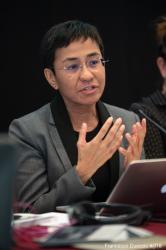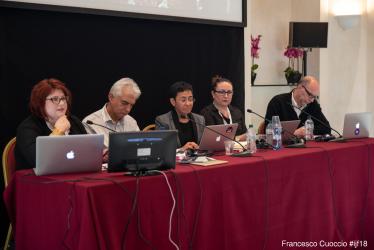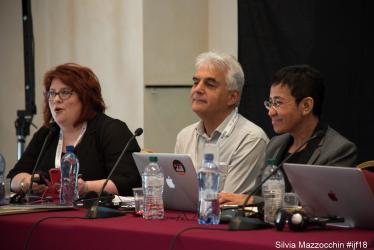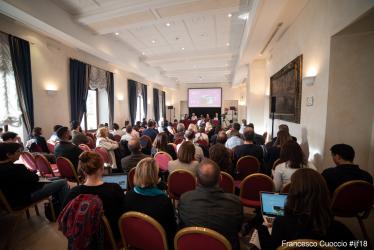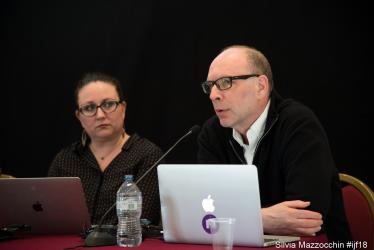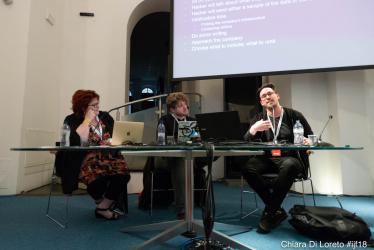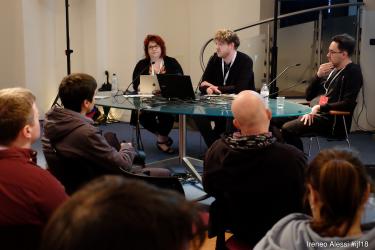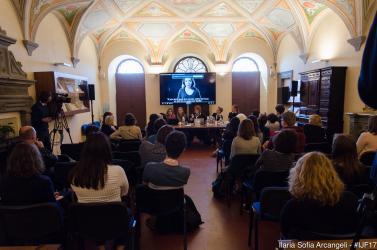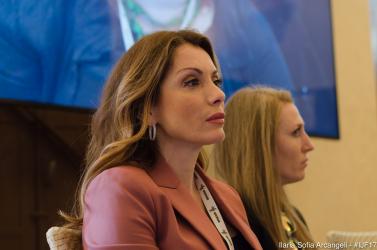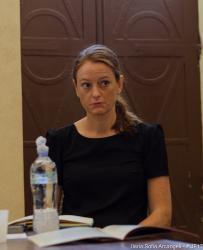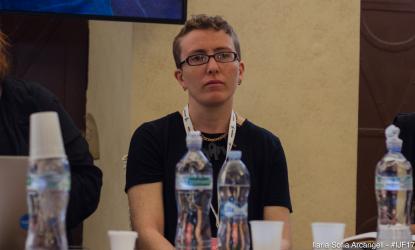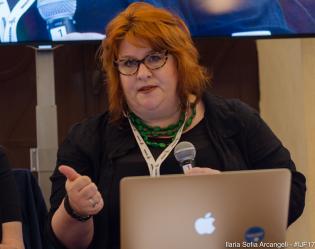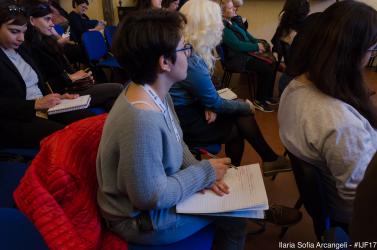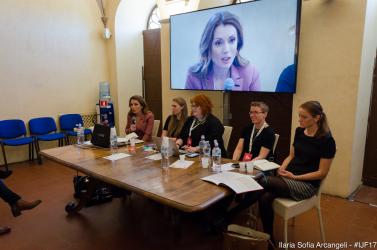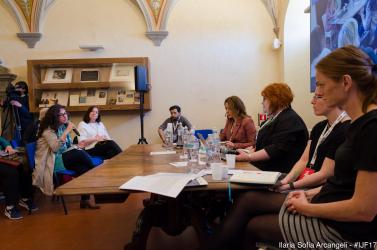Mark Zuckerberg sent shockwaves through the media world when, abruptly, in the days before Donald Trump's inauguration, he swapped sides in the information war. Meta would no longer appoint fact-check...
Julie Posetti
director Information Integrity InitiativeThe weaponisation of nostalgia is a pernicious trend infecting democratic deliberation and affecting the outcome of elections around the world. ICFJ's Disarming Disinformation project has tracked thi...
It is time to abandon the trust metric as it is applied to journalism. It is no longer fit for purpose in the context of targeted attacks on journalists and news outlets facilitated by the Big Tech ac...
The session will kick off with a 10-minute storytelling session describing Chris and Isobel’s investigation of Silicon Valley’s capture of journalism, labour, culture, and creativity. We’ll brin...
In conversation with journalism’s Nobel Laureate: Maria Ressa on democracy, disinformation and demagoguery
When Maria Ressa was awarded the 2021 Nobel Peace Prize, alongside Russian journalist Dimitry Muratov, it was the first time the practice of journalism had been honoured by the Nobel Committee since 1...
Disarming disinformation: how leading international editors are responding to information pollution in a pivotal year for democracy
This panel presents the first insights from the new global research project Disarming Disinformation, which has seen researchers embedded in multiple international newsrooms to study their responses t...
Safety of Journalists Toolbox and Guidelines for monitoring online violence against female journalists
Safety of journalists lies at the core of the OSCE Representative on Freedom of the Media’s (RFoM) mandate as part of both the early-warning and rapid response function, and to support participating...
Fighting gendered disinformation: how women journalists stand up to dictators, shadowy foreign agents and digital conspiracy networks
Nobel Peace Prize Laureate Maria Ressa learned how to stand up to a dictator when she was targeted by gendered disinformation linked to former president Rodrigo Duterte. The BBC’s Marianna Spring ha...
Towards an early warning system for online violence: how to monitor digital attacks on women journalists and prevent escalation
The Chilling, a major global study produced by UNESCO and the International Center for Journalists (ICFJ), found a clear link between online violence and offline harm. 20% of survey respondents and do...
Online violence against women journalists: a global scourge that demands urgent action
Women journalists are increasingly the targets of online violence connected to orchestrated disinformation campaigns waged by states, political actors, conspiracy networks and misogynists. They have b...
Global efforts to sustain journalism as a public good have increased in urgency in parallel with escalating pandemic-era threats. Newspaper sales in low- and middle-income countries have been particul...
When the State attacks: journalism under fire in the world's biggest democracy
#ijf22talk by Rana Ayyub. Moderated by Julie Posetti. According to Reporters Without Borders, India is one of the most dangerous countries in the world to be a journalist. Four Indian journalists wer...
As the COVID-19 pandemic took hold globally in early 2020, the International Center for Journalists (ICFJ) & the Tow Center for Digital Journalism launched a study into the transformational impact...
Journalism Innovation Project: rebooting audience engagement amidst 'platform capture' and online toxicity
Dramatic shifts in the media landscape over the past two decades — including the advent of social media, the rise of participatory audiences, and what the Journalism Innovation Project calls “plat...
Populist leaders are working to Trump’s playbook: pick a fight with the press, get the public on side and avoid scrutiny by broadcasting direct to the nation. With some global leaders now routinely ...
Prime targets of a weaponised internet: online violence against female journalists
Women are increasingly the targets of online violence connected to orchestrated disinformation campaigns waged by states and political actors. They have become targets of online communities weaponised...
Want to make your journalism more memberful? Practical tips on how to involve supporters in your work
In late 2019, the Membership Puzzle Project reported on newsrooms around the world that are working in dramatically different ways from their peers. They have memberful routines that incorporate commu...
First lessons from the Journalism Innovation Project: how to innovate under fire and avoid ‘shiny things syndrome’. This panel will mark the publication of the second Journalism Innovation Projec...
Journalism, fake news and disinformation: equipping journalism for the fightback
The targeting of journalists and news organisations - by states, populist politicians and deceptive corporate actors - makes fighting back against disinformation, misinformation and ‘malinformation�...
A commitment to gender equality, through both organisational structure and content, is a marker common to the news publishers studied in the latest report from the Reuters Institute for the Study of J...
The Perugia Principles: new guidelines for journalists working with whistleblowers
This session will represent the global industry launch of The Perugia Principles – a new set of guidelines for journalists working with whistleblowers in the digital context published in English, Sp...
Video, 360, AR, VR, Podcasts, Blockchain, Instant Articles, Newsletters, Snow Fall, Native Ads. Can we escape the innovation binge/purge cycle? It seems like there's always something new promising to...
Sources courageous enough to leak classified documents to the media do not benefit from any legal protection in Europe. Although the Tshwane principles have been supported by the Council of Europe sin...
Journalism and the future of the internet: help the UN draft a new international standard for a free and open worldwide web
The future of journalism is inextricably bound up with the wider Internet ecosystem. UNESCO, the UN agency with primary responsibility for media freedom and journalists' safety, is consulting worldwid...
Journalism's perfect storm? Confronting rising global threats from "f*ke news" to censorship, surveillance, and the killing of journalists with impunity
Some hail this period in journalism as a Golden Era, pointing to major global collaborative journalism projects and the biggest data dumps in history. True, large scale investigative journalism is ‘...
Hacks, leaks and data breaches are more and more frequently becoming objects of interest for journalists. Recent cases, such as the DNC email cache released by WikiLeaks or the Hacking Team hack, chal...
We are arguably in the golden age of audience-engaged journalism. But the growing problem of online harassment is troubling individual journalists and newsrooms alike. It's an issue confronted by both...
In harm's way - journalism safety in a world where newsrooms and war zones are both on the front lines. Journalism safety is no longer just a critical issue for those going to cover traditional war...
This session will explore the opportunities and drawbacks of scaling newsroom culture in the digital age. It will address how global news organisations can leverage their widespread teams and the chal...
Is there such a thing as the ‘right’ to be forgotten? The European Court of Justice and European Commission think so. Should there be? Badly defined, it might threaten freedom of knowledge and i...
A major new UN study of 121 countries' legal source protection frameworks has found that they are out of date and need strengthening in many cases. It also recommends that ‘acts of journalism’ s...
What would happen if tomorrow Facebook, Twitter and all other social networks relevant to the world of journalism today were - for some apocalyptic reason - unavailable. For quite some time ie. months...















